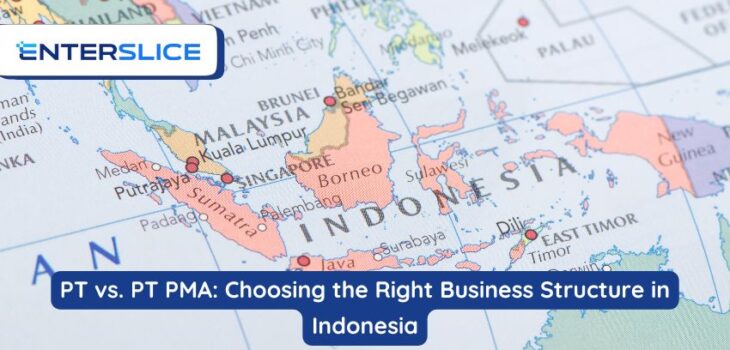 Business
Business
PT vs. PT PMA: Choosing the Right Business Structure…
If you’re planning to start a business in Indonesia, one of the first and most important decisions you’ll need to make is choosing the right business structure. For both local and foreign entrepreneurs, the two main options are PT (Perseroan Terbatas) and PT PMA (Penanaman Modal Asing). While they may sound similar, they serve very different purposes depending on your ownership structure and business goals.
In this guide, we’ll walk you through what PT and PT PMA really mean, how they differ, and which one is best for your situation. If you’re looking into company registration in Indonesia, this breakdown will give you clarity and help you move forward with confidence.
Understanding the Basics
Before diving into the comparison, let’s define the two business structures:
-
PT (Perseroan Terbatas): This is a local limited liability company. It’s meant for Indonesian citizens or entities. Foreigners cannot directly own shares in a PT.
-
PT PMA (Penanaman Modal Asing): This is a foreign-owned limited liability company. It’s designed for foreign individuals or corporations who want to establish a legal business presence in Indonesia.
So, if you’re a foreign entrepreneur looking to register a company in Indonesia, PT PMA is typically the structure you’ll need.
PT: Local Business Structure
PT is the go-to option for local entrepreneurs and businesses. It’s recognized under Indonesian law as a separate legal entity and is the most common business structure across the country.
Key Features:
-
Only Indonesian citizens or entities can own shares
-
Requires a minimum of two shareholders, a director, and a commissioner
-
Must have a minimum paid-up capital, depending on the business classification
-
Offers limited liability protection to its shareholders
-
Cannot engage in sectors restricted to foreign ownership
PTs are registered with the Indonesian company registry and enjoy a relatively straightforward setup process for locals. However, they are not a legal option for foreign investors unless a local nominee is involved, which introduces its own risks.
PT PMA: Foreign-Owned Company Structure
PT PMA is tailored specifically for foreign investors. It allows non-Indonesians to legally own shares in an Indonesian business, and it’s the official route for any international company looking to enter the market.
Key Features:
-
Can be 100% foreign-owned, depending on the industry (some sectors are restricted or require joint ventures)
-
Requires at least two shareholders (can be individuals or legal entities), one director, and one commissioner
-
Must meet minimum investment and capital requirements (generally IDR 10 billion, around USD 700,000, including capital and operational funds)
-
Eligible for business licenses, work permits for foreign staff, and access to local banking
-
Fully recognized under Indonesian law
If you’re considering Indonesia company formation as a foreign investor, PT PMA is the structure that gives you a legal and compliant foundation to operate, hire staff, and make profits.
Key Differences Between PT and PT PMA
To make the decision easier, here’s a side-by-side comparison of the two:
| Feature | PT (Local Company) | PT PMA (Foreign-Owned) |
|---|---|---|
| Ownership | 100% Indonesian | Can be 100% foreign-owned |
| Minimum Capital | Varies by business type | IDR 10 billion (approx USD 700k) |
| Sector Restrictions | Can operate in any open sector | Restricted in some sectors |
| Legal Status for Foreigners | Not available | Fully legal for foreigners |
| Business Licenses | Basic domestic licenses | Full commercial and operational licenses |
| Hiring Foreign Employees | More restricted | Easier with proper permits |
Which One Should You Choose?
If you’re an Indonesian national or working closely with trusted local partners, a PT might be the right fit, especially if you’re targeting domestic markets with a lower initial investment.
However, if you’re a foreign entrepreneur looking to legally own and control your business in Indonesia, then PT PMA is the clear choice. It gives you access to the market while keeping you compliant with Indonesian investment regulations.
Keep in mind that your business type also plays a big role. Some industries are closed or partially closed to foreign investment. You can consult the Negative Investment List (DNI) or the newer Positive Investment List, which outlines sector-specific ownership limits.
Steps to Register a Company in Indonesia
Whether you’re setting up a PT or PT PMA, here’s a general overview of the process:
-
Reserve your company name through the Ministry of Law and Human Rights
-
Prepare the Deed of Incorporation through a notary
-
Register with the Ministry of Law and Human Rights
-
Apply for a taxpayer identification number (NPWP)
-
Register with the Indonesian company registry (OSS system)
-
Obtain business licenses and location permits
-
Open a corporate bank account in Indonesia
For PT PMA, you’ll also need to submit an Investment Activity Report (LKPM) regularly and may need approval from the Investment Coordinating Board (BKPM).
It’s highly recommended to work with local experts, lawyers, or consultants to ensure all legal requirements are met, especially for foreign investors.
Common Misunderstandings
Many entrepreneurs assume that they can own a regular PT company through local nominees. While this has been a common workaround, it carries legal and operational risks. The Indonesian government has increased scrutiny on nominee arrangements, and in the event of a dispute, foreign investors may find they have limited protection.
Choosing a PT PMA means playing by the rules—but also having full legal ownership and transparency in your business dealings.
Final Thoughts
Indonesia is one of the fastest-growing economies in Southeast Asia, and setting up a business there is an exciting opportunity. But choosing between a PT and PT PMA is more than just a legal step—it’s a strategic decision that will shape how your business operates and grows.
If you’re a foreign entrepreneur looking at company registration in Indonesia, a PT PMA gives you the legal framework, operational flexibility, and market access you need to succeed. On the other hand, if you’re working with a trusted local partner or are targeting smaller domestic operations, a PT could be a cost-effective solution.
Either way, understanding the landscape of Indonesian company formation is key to avoiding legal headaches and building a sustainable, successful venture.
FAQs
1. Can a foreigner fully own a company in Indonesia?
Yes, through a PT PMA. Foreigners can own 100% of the company, depending on the business sector and compliance with the Positive Investment List.
2. How long does it take to register a company in Indonesia?
The process typically takes 3 to 6 weeks for a PT PMA, depending on the business complexity, sector, and documentation readiness.
3. Do I need a physical office to register a company in Indonesia?
Yes, a registered business address in Indonesia is required for both PT and PT PMA. Virtual offices may be accepted in some cases, but they depend on business activity and licensing needs.









